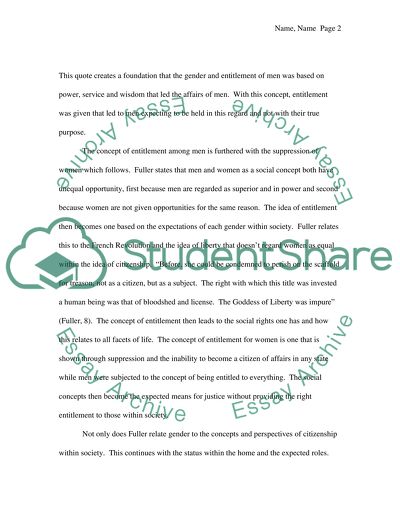Cite this document
(“Woman in the Nineteenth Century Essay Example | Topics and Well Written Essays - 1250 words”, n.d.)
Retrieved from https://studentshare.org/literature/1434707-in-woman-in-the-nineteenth-century-margaret-fuller
Retrieved from https://studentshare.org/literature/1434707-in-woman-in-the-nineteenth-century-margaret-fuller
(Woman in the Nineteenth Century Essay Example | Topics and Well Written Essays - 1250 Words)
https://studentshare.org/literature/1434707-in-woman-in-the-nineteenth-century-margaret-fuller.
https://studentshare.org/literature/1434707-in-woman-in-the-nineteenth-century-margaret-fuller.
“Woman in the Nineteenth Century Essay Example | Topics and Well Written Essays - 1250 Words”, n.d. https://studentshare.org/literature/1434707-in-woman-in-the-nineteenth-century-margaret-fuller.


